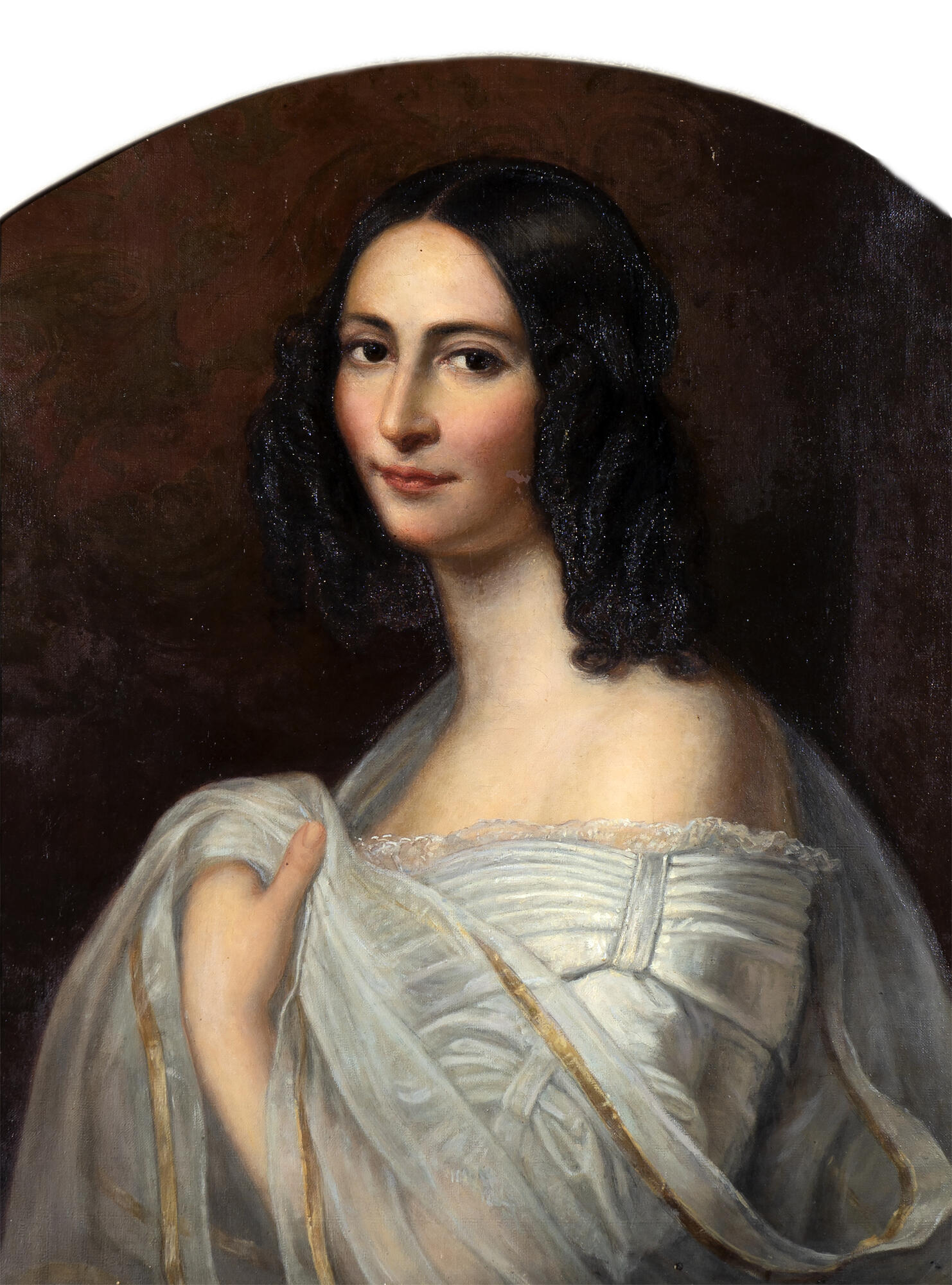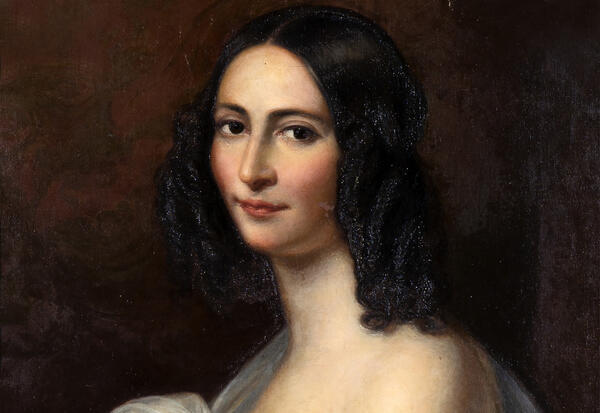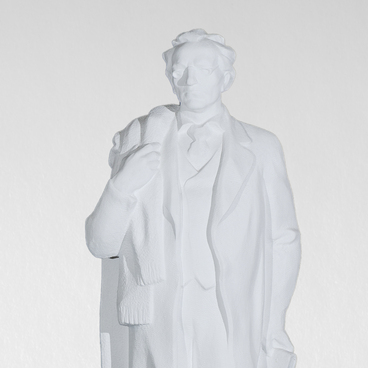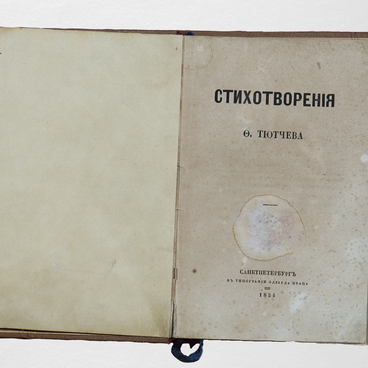The portrait depicts Ernestina Tyutcheva, the poet’s second wife. Her father was a Bavarian diplomat and she grew up in boarding schools in Paris and Strasbourg. In 1830, Ernestine married the diplomat Baron Friedrich von Dörnberg, but three years later she became a widow. She met Fyodor Tyutchev shortly before her husband’s death at a ball in Munich. Although the poet was then married, he began to court her. This love affair was the main reason why Tyutchev was expelled to Turin, where Ernestina followed him.
In 1838, the poet’s first wife, Eleanore, died after a shipwreck that had seriously damaged her health. A year later, Tyutchev married Ernestina. Their marriage lasted for 34 years. “I am convinced that you fully know me, and I consider your love to be a gift from God. Let aside the stupid things I did, my actions that were contradictory, inconsistent. The only truth in me is my feeling for you, ” Tyutchev wrote to Ernestina in 1852.
Her name is associated with the poems “Silent air enwrapping”, “The east whitened”, “I love your eyes, dear”, “The Italian villa” and “Genoa”. The poet Pyotr Vyazemsky called Ernestina the “Queen of Ovstug” and highly appreciated her literary gift, “You are a born journalist in the best sense of the word, a journalist in the spirit of Madame De Sevigne, and if someday our correspondence becomes the property of posterity, then I promise you epistolary and literary glory that will outlive your children and grandchildren.”
The poet’s letters to his wife contain thoughts that help reveal his attitude to Ovstug, the family estate, where he was born and raised, ‘When you talk about Ovstug, lovely, fragrant, blossoming, serene and bright — oh, what bouts of homesickness I suffer from… Alas, how is this paradise to be reached? ’ In 1850, Ernestina started studying Russian seriously and learnt to read and understand everything what she read from the sheet, ‘Now I want to read only in Russian, everything else seems boring and bland to me, ’ she remarked.
Ernestina was by the poet’s side until the last minutes of his life. She was buried next to him in the cemetery at the Novodevichy Convent of Holy Resurrection in St. Petersburg. “I don”t know if only in the past I loved you, but I feel very clearly that the future without you would terrify me, ” the poet wrote.
In 1838, the poet’s first wife, Eleanore, died after a shipwreck that had seriously damaged her health. A year later, Tyutchev married Ernestina. Their marriage lasted for 34 years. “I am convinced that you fully know me, and I consider your love to be a gift from God. Let aside the stupid things I did, my actions that were contradictory, inconsistent. The only truth in me is my feeling for you, ” Tyutchev wrote to Ernestina in 1852.
Her name is associated with the poems “Silent air enwrapping”, “The east whitened”, “I love your eyes, dear”, “The Italian villa” and “Genoa”. The poet Pyotr Vyazemsky called Ernestina the “Queen of Ovstug” and highly appreciated her literary gift, “You are a born journalist in the best sense of the word, a journalist in the spirit of Madame De Sevigne, and if someday our correspondence becomes the property of posterity, then I promise you epistolary and literary glory that will outlive your children and grandchildren.”
The poet’s letters to his wife contain thoughts that help reveal his attitude to Ovstug, the family estate, where he was born and raised, ‘When you talk about Ovstug, lovely, fragrant, blossoming, serene and bright — oh, what bouts of homesickness I suffer from… Alas, how is this paradise to be reached? ’ In 1850, Ernestina started studying Russian seriously and learnt to read and understand everything what she read from the sheet, ‘Now I want to read only in Russian, everything else seems boring and bland to me, ’ she remarked.
Ernestina was by the poet’s side until the last minutes of his life. She was buried next to him in the cemetery at the Novodevichy Convent of Holy Resurrection in St. Petersburg. “I don”t know if only in the past I loved you, but I feel very clearly that the future without you would terrify me, ” the poet wrote.



